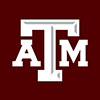The saying “It’s Greek to me” can be applied to auto mechanics, foreign languages or even scientific principles. And since science can pose particular challenges to all students, those already struggling to learn English are even more at risk.
But thanks to Drs. Rafael Lara-Alecio and Fuhui Tong, principal and co-principal investigators of the Middle School Science for English Language Learners (MSSELL) project, they are tackling the pressing issue of improving science education and literacy for students at risk due to limited English proficiency or family income.
“Science, by definition, is an academic language,” Lara-Alecio says. “So in addition to mastering the general language, English Language Learners have to master the unique language of science.”
With funding from the National Science Foundation’s Discovery Research K-12 Program, the research team, which also includes researchers from Sam Houston State University, partnered with Aldine Independent School District outside of Houston to develop curriculum and best practices for teaching science to English Language Learners.
According to Tong, English language development for students in middle and high school is not as widely studied as it is at the early childhood and elementary school levels. Further, there is limited knowledge on how best to help English Language Learners tackle science while also acquiring English skills.
And there is a demonstrated need to assist these students. In 2005 and 2006, fifth-grade English Language Learners scored lower than any other subgroup on the science portion of the Texas Assessment of Knowledge and Skills.
“Academic language in science is more than just vocabulary,” Tong says. “It includes dispositions, behaviors, critical language arts skills, higher-order thinking and metalinguistic knowledge.”
Researchers with Project MSSELL say their study will include two groups of fifth- and sixth-graders, with one group receiving the standard science curriculum and the other an enhanced science curriculum that closely follows the science Texas Essential Knowledge and Skills and is based on the 5E Instructional Model (Engage, Explore, Explain, Elaborate and Evaluate).
Students receiving the enhanced curriculum will participate in hands-on experiments and have the use of visual cues, vocabulary building and cooperative learning incorporated into their instruction to boost their understanding. Project MSSELL researchers will mentor the students via e-mail and video and have the students complete experiments and activities in the lab twice during the year.
Long-term, Project MSSELL is ready to make a real impact on the lives of English Language Learners since the language skills the students acquire will benefit them throughout their education.
“We will be able to incorporate more effective technologies and curriculum into the classrooms and disseminate these practices among the schools,” Lara-Alecio says. “Drop-out rates for Latino English Language Learners in middle and high school are severe, so by finding better ways to help these students, they will be more successful.”
